To the right is a picture of a recently desecrated statue of Christopher Columbus. With red paint simulating the appearance of blood streaming down his head and shoulders, big white letters mark the ground in front of the memorial with the command: “Kill The Colonizer.” Obviously, the vandals who did this acted more as activists than historians, but every activist operates upon a set of historical premises attempting to justify their actions. But are they accurate? Was Columbus simply a murdering colonizer? Did American colonization even start with Columbus? If not, then who first colonized the New World? What does colonization mean and what effects did it have?
For starters, colonization was a common practice long before Columbus. Far from being the first colonizer, Columbus and his views upon the purpose and procedure of colonization came after centuries of historical development. To view the actions of Columbus as a colonial governor outside of the context and culture of his day is to commit the most obvious of academic malpractices. The history of colonization can be reliably traced back to the ancient Greeks, Macedonians, Romans, and other Mediterranean cultures. Over the centuries they sent many thousands abroad to establish cities and economic centers in faraway lands. Quite often these endeavors were caused by a desire for land, trading, or military outposts. Wherever these colonists went they brought with them the Greco-Roman culture and institutions such as democracy, slavery, and the arts. In fact, the enslavement of those foreign populations was so prevalent that at its height 30% of the people living in classical era Athens were slaves while nearly 40% of total population in the Roman empire were enslaved.1
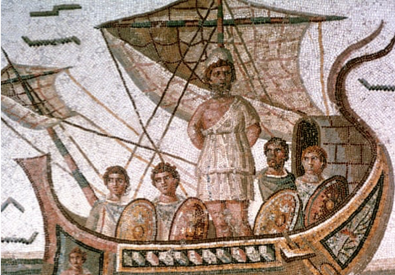 This tradition of conquest, colonization and enslavement continued in the Islamic world as the power of Rome splintered and crumbled in both the East and West. The Barbary Coast of North Africa under Muslim rule became a Mecca for the slave trade as African tribes sold captured combatants to the Islamic traders, who then exported them around the Mediterranean. In fact, the African slave trade conducted by Islamic traders first exposed Europe to the idea through the Muslim invasions in the Iberian peninsula.2 Something else which must be acknowledged is that slavery has always been a universal institution. Nearly every single people, race, and culture has been both slave and master. In fact, globally there were more white slaves than black slaves all the way up to the seventeenth century.3
This tradition of conquest, colonization and enslavement continued in the Islamic world as the power of Rome splintered and crumbled in both the East and West. The Barbary Coast of North Africa under Muslim rule became a Mecca for the slave trade as African tribes sold captured combatants to the Islamic traders, who then exported them around the Mediterranean. In fact, the African slave trade conducted by Islamic traders first exposed Europe to the idea through the Muslim invasions in the Iberian peninsula.2 Something else which must be acknowledged is that slavery has always been a universal institution. Nearly every single people, race, and culture has been both slave and master. In fact, globally there were more white slaves than black slaves all the way up to the seventeenth century.3
With the Islamic conquest of the Byzantine empire and the Holy Land nearly all European trade to the Orient had been effectively halted and the need to discover new routes became all the more pressing. Such influences led the Portuguese mariners to sail down the coast of Africa in attempts to navigate around Africa to India; with the 1431 colonization in the closer Azores and the final discovery of the farther islands of Flores and Corvo by 1452, in addition to the widespread trade and traffic along the African coast the systems of colonization were modernized.
With this increasing push for exploration tensions grew between neighboring Portugal and Spain concerning who could sail, trade, and explore where. This led to the gradual codification of the ideas and doctrines behind exploration and colonization. Such international issues between two nations led by Catholic rulers meant that the Pope was the natural third-party agent for arbitration. With things heating up, Pope Nicholas V stepped in to cool tensions and issued the papal bull Romanus Pontifex in 1455.
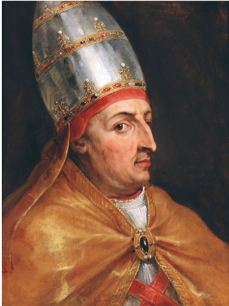
The Pope, while establishing the areas of exploration the Portuguese had a right to possess due to their investment and action, also takes the occasion to outline the corresponding responsibilities of the exploring powers. The ultimate concern pursuant to the theological doctrine established is the conversion of unreached native populations. Nicholas V writes that the following dictates arise after:
“Contemplating with a father’s mind all the several climes of the world and the characteristics of all the nations dwelling in them and seeking and desiring the salvation of all.” 4
Such contemplation causes him to establish a system of incentives in order to encourage the various Catholic states to, “restrain the savage excesses of the Saracens [Muslims] and of other infidels, enemies of the Christian name,” and expand the bounds of European influence to people, “situated in the remotest parts unknown to us.”5
(Today the idea of Christians holding such militaristic views about defending the faith seem antiquated and sometimes repulsive, but often it is forgotten that such perspective was born out of the several centuries Islamic domination and expansion. After the fall of Rome and the reduction of the Byzantine Empire, the successor states in Europe were weak, disorganized, and ill-equipped to deal with both the infighting and the appearance of a new, warlike, and powerful religion coming out of Arabia. As the Muslim caliphates swept across North Africa and through the Levant, they also decimated many of the oldest Christian churches and communities. After thoroughly dominating and establishing Islamic hegemony in the conquered regions, they even began raiding Europe itself and eventually overtook the southern part of the Iberian peninsula. It was the reconquest of this Kingdom of Granada which consumed the Spanish Sovereigns’ attention in the years leading up to Columbus’s voyage and Columbus himself even took part in the fighting. Therefore it should come as no surprise or shock that the Church held this view at the time considering that the most recent centuries had consisted of them being continually pushed back by a constant jihad.)
Applauding Prince Henry “the Navigator” and the efforts of the Portuguese, “to cause the most glorious name of the said Creator to be published, extolled, and revered throughout the whole world, even in the most remote and undiscovered places,” the Pope commanded that all colonization efforts cause, “churches and other pious places to be there founded and built, in which divine service is celebrated.”6 With the effect that:
“Very many inhabitants or dwellers in divers islands situated in the said sea, coming to the knowledge of the true God, have received holy baptism, to the praise and glory of God, the salvation of the souls of many, the propagation also of the orthodox faith, and the increase of divine worship.”7
However, with no real separation existing between church and state (as clearly evidenced by the Pope conducting international treaties on trade and territory) it was often considered that one of the best methods of evangelism consisted in the state conquering hostile peoples to allow the church to then do the work of conversion more easily. This had been the most widespread method of conversion in the Islamic and Christian world for the past several centuries. The papal bull explains how:
“Thence also many Guineamen and other negroes, taken by force, and some by barter of unprohibited articles, or by other lawful contract of purchase, have been sent to the said kingdoms. A large number of these have been concerted to the Catholic faith, and it is hoped, by the help of divine mercy, that if such progress be continued with them, either those peoples will be converted to the faith or at least the souls of many of them will be gained for Christ.”8
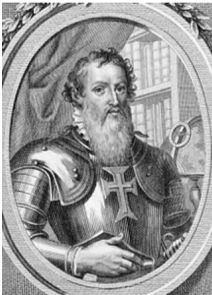
Thus—carrying on a tradition going back to the Greeks and Romans and continued by the Islamic kingdoms—the political Catholic church considered enslavement of hostile people a productive and permissible method of inducing conversion. Later in the bull it infers that only, “all Saracens and pagans whatsoever, and other enemies of Christ wheresoever placed,” were open for the Christian powers (Portugal in this case), “to reduce their persons to perpetual slavery.”9
However, it is important to note that enslavement is presented only as a secondary and more regulated method, not to be principally employed. Additionally—and this is significant considering Columbus’s stated motivations for discovery—Pope Nicholas V thought exploration and a trade route was necessary because reports told of a large Christian kingdom (or at least one heavily inclined to receive the faith) which would assist the European nations in retaking Jerusalem in a new crusade. The bull states that:
“by his effort and industry that sea might become navigable as far as to the Indians who are said to worship the name of Christ, and that thus he might be able to enter into relation with them, and to incite them to aid the Christians against the Saracens and other such enemies of the faith.”10
This papal bull provided the codified reasoning which most clearly encapsulates the world in which Columbus developed his understanding of colonization. Even here his faith eventually directed the policies he would later institute in the Indies. The context of colonization considered that the ends of salvation or cultural conversion justified the means of legal warfare and slavery was by no means invented by Columbus but inherited from a long tradition in the Portuguese, Muslim, and ancient systems. Thus it is not surprising to find such policies pertaining to slavery, but, as we shall see, the seeds of freedom and equality found in Columbus’s plan is a rare moment of surprising progressiveness in the scheme of historical development.
The duel influences of Portuguese examples and papist doctrine had a distinct effect upon the first wave of Spanish colonization in the New World as directed by Columbus. Famed naval historian Samuel Eliot Morison, who used Columbus’s journals to trace the course of his voyages in the Harvard Columbia Expeditions, explains that such plans were focused more on establishing a series of trading posts than conquest:
He [Columbus] was inspired rather by the trading empire which the Portuguese had been establishing along the West African coast for half a century. Of that he had first-hand knowledge. In Africa the Portuguese sought not to colonize, but to trade; and experience proved that the West African trade could best be conducted between a staple town in Portugal (at first Lagos, later Lisbon), and garrisoned trading stations—“factories” as they were called in English.”11
To Columbus, the original goal was not enslavement or subordination—in fact Columbus considered the peaceful Taino tribes as citizens of Spain with equal rights to himself and his crew (much to the chagrin of the avaricious Spaniards).12 In fact, after announcing his discovery Columbus set about planning a second voyage to the New World with an intent to establish the type of trading post colonies described above. Based off of his words and deeds, Columbus’s scheme for colonization distills into four key 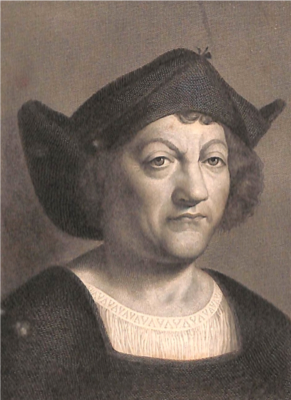 aspects:
aspects:
- The establishment of a new trading empire in the Far East;
- Exclusion of all but Catholic Christians from its benefits;
- Conversion of the natives to Christianity; and
- The enslavement of hostile or recalcitrant natives, as a method of punishment and a source of profit.13
Slavery, as it continuously was to Columbus, the last option and only to those who were defeated in war. This idea corresponds to the 1455 Romanus Pontifex Bull. Going back to Columbus’s official proposed plan of colonization and government in the New World, slavery never even appeared. Making his case to King Ferdinand and Queen Isabella, Columbus spent most of his time regulating the system of legal gold-hunting. He worried that the Spanish will be driven too much by a, “greed for gold,” which will lead to a deficit in food and supplies.14 To solve this Columbus stipulates that the Spanish must obtain a license to search for gold in addition to building permanent residences, giving half of the gold to the government, and only being able to collect during a part of the year.15 While he disincentivized gold-hunting, Columbus, ever the explorer, instead incentivized, “the discovery of new lands.”16
However, before expressing the various and detailed economic regulations for gold and discovery, Columbus makes clear that his primary intentions are religious, demanding that:
There be a church and abbots or friars to administer the sacraments, perform divine worship, and to convert the Indians.17
For Columbus, gold was secondary to God. In fact, just like Pope Nicholas V, Columbus desired that the proceeds from the discover go to funding the re-conquest of Jerusalem in a new crusade.18 The Catholic Sovereigns Ferdinand and Isabella quickly confirmed the request. They agreed with Columbus that conversion was the first object of colonization. After establishing that the Taino fall under the protected status afford those “very ripe to be converted to our Holy Catholic Faith, since they have neither dogma nor doctrine,” they command that:
“The said Admiral, Viceroy and Governor that by all ways and means he strive and endeavor to win over the inhabitants of the said Islands and Mainland to be converted to our Holy Catholic Faith; and to aid him in his work Their Highnesses are sending thither the learned father Fray Buil,i together with other Religiosos whom the said Admiral is to take with him, and these through the effort and exertion of the Indians who have come to Spain, [the Admiral] is to see that they be carefully taught the principles of Our Holy Faith, for they must already know and understand much of our language; and he shall provide for their instruction as best he can.”19
Such commands directly contradict the typical propaganda which characterizes Columbus as some uncontrollable slave trader. In the Catholic doctrines of colonization slavery was predicated on the assumption that the enslaved was not Christian. Thus, it follows that if Columbus or the Sovereigns primarily sought slaves they would have been hesitant to encourage conversion—especially since they thought the natives would easily convert to the faith. The Sovereigns continue even further, however, by instructing Columbus to specifically protect the civil and political rights of the peaceful allied tribes, commanding that he:
“Force and compel all those who sail therein as well as all others who are to go out from here later on, that they treat the said Indians very well and lovingly and abstain from doing them any injury, arranging that both people hold much conversation and intimacy, each serving the others to the best of their ability. Moreover, the said Admiral shall graciously present them with things from the merchandise of Their Highnesses which he is carrying for barter, and honor them much, and if some person or persons should maltreat the said Indians in any manner whatsoever, the said Admiral, as Viceroy and Governor of Their Highnesses, shall punish them severely by virtue of the authority vested in him by Their Majesties for this purpose.”20
Thus, Columbus is dispatched with orders to treat the Taino “very well and lovingly” and to “honor them much.” Additionally, should any colonist attempt to take advantage of them, he has express authority to punish the offending Spaniard “severely.” Later we will see that this is exactly what Columbus attempts to do and as reward for his faithful execution of the Sovereigns’ orders he is deposed, imprisoned by rebels, and shipped back to Spain in chains—simply because he would not allow the Spanish colonists to take unfettered advantage of the Indians.
If this was not enough, Pope Alexander VI decided it necessary to mediate between Portugal (who was attempting to claim the newly discovered lands) and Spain (who obviously rejected that claim). Before calming the international tensions in his 1493 bull Inter Caetera, Alexander VI confirmed the intentions of Columbus and the instructions of the Monarchs concerning the importance of evangelization before all else. Building off of the same principles found in Romanus Pontifex, the Pope acknowledged how Columbus and the Monarchs sought to:
“Seek out and discover certain lands and islands remote and unknown and not hitherto discovered by others, to the end that you might bring to the worship of our Redeemer and profession of the Catholic faith their residents and inhabitants.”21
Then, after applauding Columbus for his long-suffering devotion to exploration and his clear skill in navigation, the Pope explains that based off of all the current reports and experiences:
“Therein dwell very many peoples living in peace, and, as reported, going unclothed, and not eating flesh. Moreover, as your aforesaid envoys are of opinion, these very peoples living in the said islands and countries believe in one God, the Creator in heaven, and seem sufficiently disposed to embrace the Catholic faith and be trained in good morals. And it is hoped that, were they instructed, the name of the Savior, our Lord Jesus Christ, would easily be introduced into the said countries and islands.”22
Up to this point, the only natives which Columbus had encountered were the relatively peaceful and amiable Taino who immediately allied themselves with Columbus. The explorers had not met the warlike Caribs who were truly barbaric and savagely attacked and cannibalized the Taino they captured through conquest. Thus it is telling that while no openly hostile or especially onerous tribes had been encountered slavery hardly appeared even in passing throughout any of the three main colonization documents (those being Columbus’s memorial, the Sovereigns’ response, and the Inter Caetera bull). Alexander VI does provide that if such “barbarous nations,” be found to exist, they ought to be, “be overthrown and brought to the faith.”23 But again, that is a tertiary and conditional injunction, the first and foremost aim is:
“That inasmuch as with eager zeal for the true faith you design to equip and dispatch this expedition, you purpose also, as is your duty, to lead the peoples dwelling in those islands to embrace the Christian profession; nor at any time let dangers or hardships deter you therefrom, with the stout hope and trust in your hearts that Almighty God will further your undertakings.”24
Based upon the official colonial plans and doctrinal statements no intention to enslave the natives initially existed on the part of the Pope, the Monarchs, or the Admiral. As no hostile or infidel power had been encountered at this point no one could have been legally enslaved based off of the previously stated policies.
The weight of such declarations ought to be plainly obvious. Christopher Columbus a man with “genuine and sincere,” belief in Christianity,25 and the expectation had been clearly set that conversion came before anything else—even the eventual profits were supposed to go back into spreading Christianity. From our position in the 21st century it seems naïve that Columbus could have believed such a plan would succeed. The tragedy of his failed attempts to stop the malevolent Spanish rebels should lead the careful student of history to wonder what it could have been but for the bad actors who traveled with Columbus. In fact, while being shipped back to Spain after rebellious colonists and renegade magistrates disposed him, he laments that:
“a great number of men have been to the Indies, who did not deserve baptism in the eyes of God or men.…wretches without faith, and who are unworthy of unbelief.”26
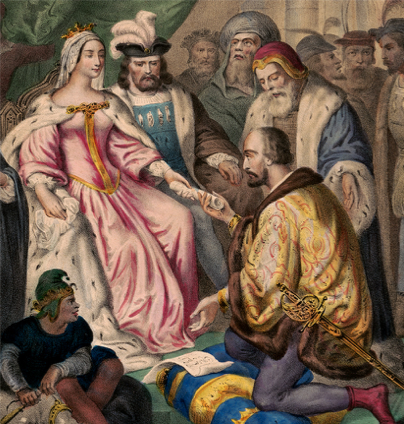 This complaint calls back to the instructions of Ferdinand and Isabella, and the Inter Caetera from 1493 only seven years prior. Throughout the letter Columbus decries the impious actions of the Spaniards done in contradiction the governing policies established by both crown and church.
This complaint calls back to the instructions of Ferdinand and Isabella, and the Inter Caetera from 1493 only seven years prior. Throughout the letter Columbus decries the impious actions of the Spaniards done in contradiction the governing policies established by both crown and church.
Such was the officially stated policy concerning the treatment of the native populations from the Catholic Governor, the Catholic Sovereigns, and the Catholic Popes. In all, the overarching theme is that while barbarous and infidel powers could be enslaved through just war, the initial and primary duty was the conversion and salvation of all peaceful peoples.
What, however, is nearly universally overlooked in every discussion of American colonization—especially by the overzealous yet tremendously underinformed activists who vandalized that statue pictured earlier—is that Columbus was not the first colonizer in the New World. When he landed in the Caribbean in 1492, he encountered cultures which had been conquering, colonizing, and enslaving each other for hundreds of years prior to his arrival. In fact, Columbus’s plan for colonization was actually more humane and civilized than the barbaric and stunning method employed by the Taino upon the Siboney, and likewise the Caribs upon the Taino. Morison explains that:
Colonization, we must remember, is merely one form of conquest, and conquest is one of the oldest and most respectable of Euro-Asiatic folk-ways, which the ancestors of our Indians had practiced in the New World for several millennia before the first conquistador appeared from Castile.27
History must be approached with the understanding that “all have sinned and fallen short of the Glory of God” (Romans 3:23). Sin is the universal condition of man and knows no exceptions save one. It should, therefore come as no surprise that the native Americans were less than perfect. What might, however, be shocking is the extent in which they practiced and even institutionalized reprehensible behavior such slavery, cannibalism, human trafficking, polygamy, sodomy, genocide, and even baby mills for the production of babies to be eaten. One would think that the activists would be protesting such actions even more intensely than those of the comparatively much more humane Columbus.
From just a brief summary of the governing policy instituted by Columbus in the New World it becomes manifestly apparent that his actions did not arise from his imagination but from the doctrines of the most influential Catholic leaders in both church and state. The methods employed by Columbus are unique to the beneficial Catholic influence upon long-standing colonization ideology. His implementation of the principles found in Romanus Pontifex, expanded upon in Inter Caetera, and ordered by Ferdinand and Isabella reflect his belief in Catholicism. Columbus himself declared at the end of his life that all of his endeavors had arisen from his devotion to God, explaining:
“No one should be afraid to take on any enterprise in the name of our Savior, if it is right and if the purpose is purely for his holy service.”28
He was driven by a desire to do the will of God and effect the conversion of the natives—not their enslavement. Far from being a focus, slavery is repeatedly overlooked or ignored in preference to the leading concerns of religion or the economy. By placing Columbus’s policies in the proper context, a better and wider understanding emerges of the first years of colonization.
So maybe those vandalizing activists should reconsider their actions and look at the full picture instead of just the sections which they believe justify their juvenile decisions. They are unwittingly fulfilling the very words which the first great biography of Columbus, Washington Irving, noted all the way back in 1828—effectively bringing metaphor into reality:
There is a certain meddlesome spirit, which, in the garb of learned research, goes prying about the traces of history, casting down its monuments, and marring and mutilating its fairest trophies. Care should be taken to vindicate great names from such pernicious erudition. It defeats one of the most salutary purposes of history, that of furnishing examples of what human genius and laudable enterprise may accomplish.29
The words of Irving ring especially true today as many statues and memorials to Columbus—among a host of other American heroes such as George Washington and Thomas Jefferson—are being discarded, desecrated, or destroyed.
With that in mind, lets now turn our attention away from the Old World Columbus was leaving and to the New World he was discovering. What were natives actually like and how did it compare to the Europeans? [To continue learning about Columbus read Before the West was Won here.]
Endnotes
i Fray Buil played a large role in the downfall of Columbus and his colonial plan as he never attempted to convert a single Indian and instead spent all his efforts in stirring up the Spaniards against both the natives and Columbus.
1 Fernando Santos-Granero, Vital Enemies: Slavery, Predation, and the Amerindian Political Economy of Life (Austin: University of Texas Press, 2009), 226-227.
2 Philip Morgan, “Origins of American Slavery,” Organization of American History Magazine of History, Vol. 19, No. 4 (July 2005), 51-52.
3 Philip Morgan, “Origins of American Slavery,” Organization of American Historians Magazine of History, Vol. 19 No. 4 (July 2005), 52.
4 Nicholas V, “The Bull Romanus Pontifex. January 8, 1455,” European Treaties Bearing on the History of the United States and its Dependencies to 1648, edited by Frances Gardiner Davenport (Washington DC: Carnegie Institution of Washington, 1917), 20-21.
5 Nicholas V, “The Bull Romanus Pontifex. January 8, 1455,” European Treaties Bearing on the History of the United States and its Dependencies to 1648, edited by Frances Gardiner Davenport (Washington DC: Carnegie Institution of Washington, 1917), 21.
6 Nicholas V, “The Bull Romanus Pontifex. January 8, 1455,” European Treaties Bearing on the History of the United States and its Dependencies to 1648, edited by Frances Gardiner Davenport (Washington DC: Carnegie Institution of Washington, 1917), 20-21.
7 Nicholas V, “The Bull Romanus Pontifex. January 8, 1455,” European Treaties Bearing on the History of the United States and its Dependencies to 1648, edited by Frances Gardiner Davenport (Washington DC: Carnegie Institution of Washington, 1917), 20-21.
8 Nicholas V, “The Bull Romanus Pontifex. January 8, 1455,” European Treaties Bearing on the History of the United States and its Dependencies to 1648, edited by Frances Gardiner Davenport (Washington DC: Carnegie Institution of Washington, 1917), 22.
9 Nicholas V, “The Bull Romanus Pontifex. January 8, 1455,” European Treaties Bearing on the History of the United States and its Dependencies to 1648, edited by Frances Gardiner Davenport (Washington DC: Carnegie Institution of Washington, 1917), 23.
10 Nicholas V, “The Bull Romanus Pontifex. January 8, 1455,” European Treaties Bearing on the History of the United States and its Dependencies to 1648, edited by Frances Gardiner Davenport (Washington DC: Carnegie Institution of Washington, 1917), 21-22.
11 Samuel Eliot Morison, “The Earliest Colonial Policy Toward America: That of Columbus,” Bulletin of the Pan American Union 76, no. 10 (October, 1942), 544.
12 Christopher Columbus, The Journal of Christopher Columbus: During His First Voyage, 1492-93, edited by Clements R. Markham (London: Hakluyt Society, 1893), 156.
13 Samuel Eliot Morison, “The Earliest Colonial Policy Toward America: That of Columbus,” Bulletin of the Pan American Union 76, no. 10 (October, 1942), 546.
14 Christopher Columbus, “Memorial to the Sovereigns on Colonial Policy, April 1493,” Journals and Other Documents on the Life and Voyages of Christopher Columbus, Edited by Samuel Eliot Morrison (New York: The Heritage Press, 1963), 201.
15 Christopher Columbus, “Memorial to the Sovereigns on Colonial Policy, April 1493,” Journals and Other Documents on the Life and Voyages of Christopher Columbus, Edited by Samuel Eliot Morrison (New York: The Heritage Press, 1963), 201.
16 Christopher Columbus, “Memorial to the Sovereigns on Colonial Policy, April 1493,” Journals and Other Documents on the Life and Voyages of Christopher Columbus, Edited by Samuel Eliot Morrison (New York: The Heritage Press, 1963), 201.
17 Christopher Columbus, “Memorial to the Sovereigns on Colonial Policy, April 1493,” Journals and Other Documents on the Life and Voyages of Christopher Columbus, Edited by Samuel Eliot Morrison (New York: The Heritage Press, 1963), 201.
18 Christopher Columbus, The Journal of Christopher Columbus: During His First Voyage, 1492-93, edited by Clements R. Markham (London: Hakluyt Society, 1893), 139.
19 “Instruction of the Sovereigns to Columbus for His Second Voyage to the Indies, 29 May 1493,” Journals and Other Documents on the Life and Voyages of Christopher Columbus, Edited by Samuel Eliot Morrison (New York: The Heritage Press, 1963), 203-204.
20 “Instruction of the Sovereigns to Columbus for His Second Voyage to the Indies, 29 May 1493,” Journals and Other Documents on the Life and Voyages of Christopher Columbus, Edited by Samuel Eliot Morrison (New York: The Heritage Press, 1963), 203-204.
21 Alexander VI, “The Bull Inter Caetera. May 3, 1493,” European Treaties Bearing on the History of the United States and its Dependencies to 1648, edited by Frances Gardiner Davenport (Washington DC: Carnegie Institution of Washington, 1917), 61.
22 Alexander VI, “The Bull Inter Caetera. May 3, 1493,” European Treaties Bearing on the History of the United States and its Dependencies to 1648, edited by Frances Gardiner Davenport (Washington DC: Carnegie Institution of Washington, 1917), 62.
23 Alexander VI, “The Bull Inter Caetera. May 3, 1493,” European Treaties Bearing on the History of the United States and its Dependencies to 1648, edited by Frances Gardiner Davenport (Washington DC: Carnegie Institution of Washington, 1917), 61.
24 Alexander VI, “The Bull Inter Caetera. May 3, 1493,” European Treaties Bearing on the History of the United States and its Dependencies to 1648, edited by Frances Gardiner Davenport (Washington DC: Carnegie Institution of Washington, 1917), 61-62.
25 Samuel Eliot Morison. Admiral of the Ocean Sea: A Life of Christopher Columbus (Boston: Little, Brown and Company, 1942), 47.
26 Christopher Columbus, “Letter of the Admiral to the (quondam) nurse of the Prince John, written near the end of the year 1500,” Select Letters of Christopher Columbus (London: Hakluyt Society, 1870) 165.
27 Samuel Eliot Morison, “The Earliest Colonial Policy Toward America: That of Columbus,” Bulletin of the Pan American Union 76, no. 10 (October, 1942), 543.
28 Columbus, “Letter from the Admiral to the King and Queen,” 182-183.
29 Washington Irving, A History of the Life and Voyages of Christopher Columbus (London: John Murray, 1828), 1: 64-65.
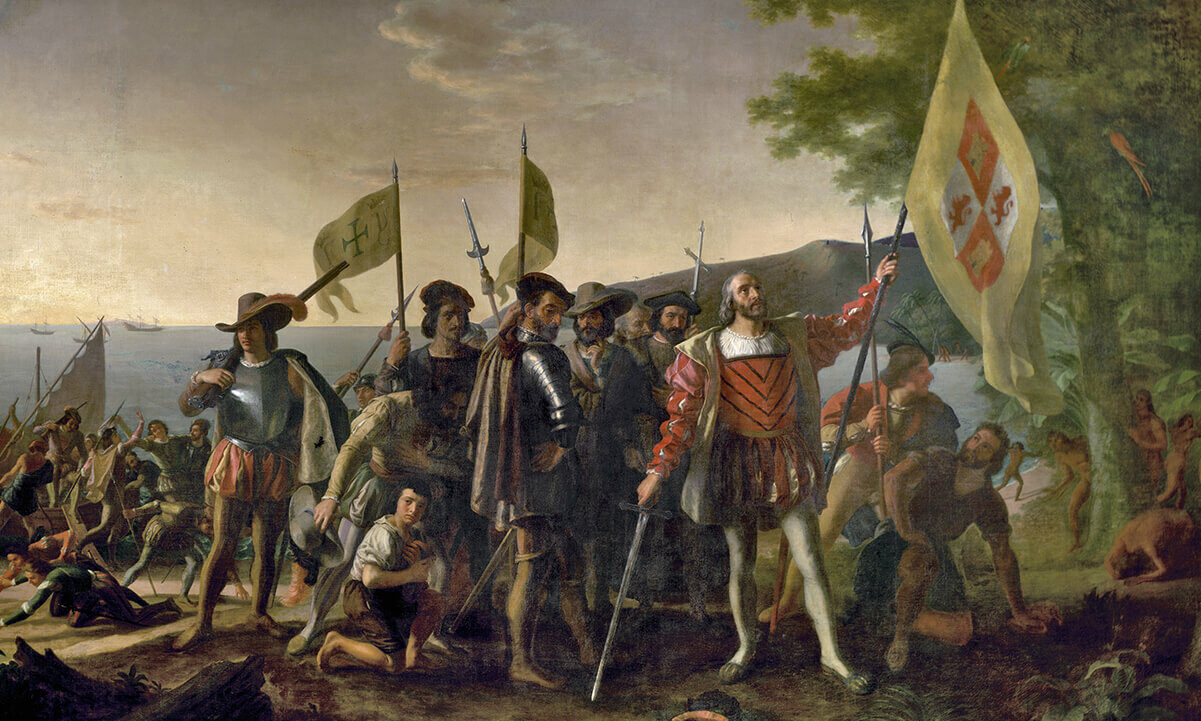

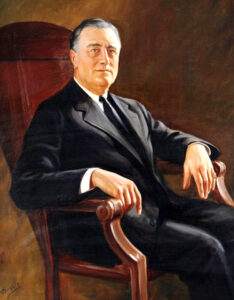 It is because the spirit of unselfish service personified by the life and the teachings of Christ makes appeal to the inner conscience and hope of every man and every woman in every part of the earth. It transcends in the ultimate all lines of race, of habitat, of nation. It lives in the midst of war, of slavery, of conquest. It survives prohibitions and decrees and force. It is an unquenchable Spring of Promise to humanity.
It is because the spirit of unselfish service personified by the life and the teachings of Christ makes appeal to the inner conscience and hope of every man and every woman in every part of the earth. It transcends in the ultimate all lines of race, of habitat, of nation. It lives in the midst of war, of slavery, of conquest. It survives prohibitions and decrees and force. It is an unquenchable Spring of Promise to humanity.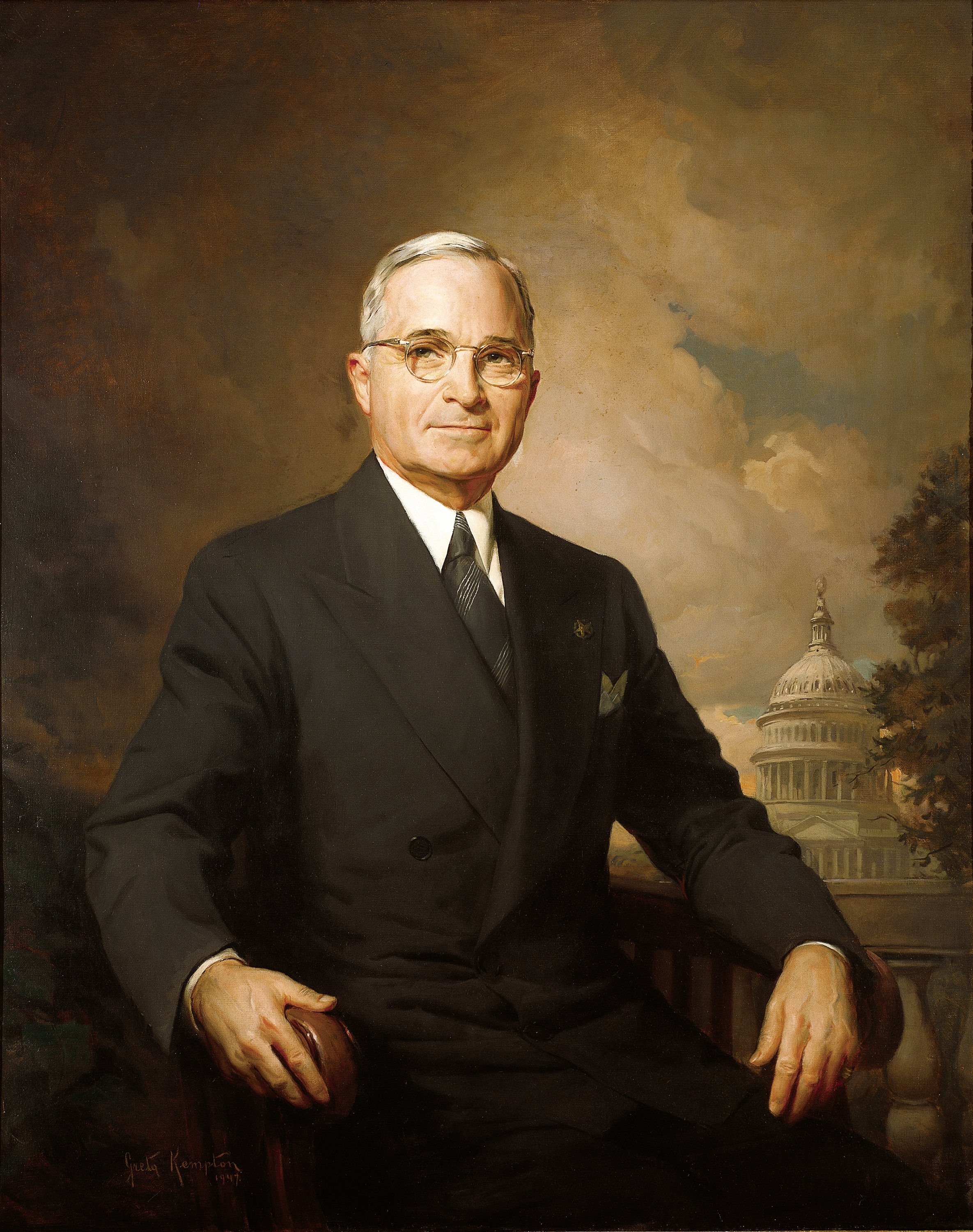 [W]e remember another night long ago. Then a Child was born in a stable. A star hovered over, drawing wise men from afar. Shepherds, in a field, heard angels singing: “Glory to God in the highest, and on earth peace, good will toward men.” That was the first Christmas and it was God’s great gift to us. This is a wonderful story. Year after year it brings peace and tranquility to troubled hearts in a troubled world. And tonight the earth seems hushed, as we turn to the old, old story of how “God so loved the world, that He gave His only begotten Son, that whosoever believeth in Him should not perish, but have everlasting life.”
[W]e remember another night long ago. Then a Child was born in a stable. A star hovered over, drawing wise men from afar. Shepherds, in a field, heard angels singing: “Glory to God in the highest, and on earth peace, good will toward men.” That was the first Christmas and it was God’s great gift to us. This is a wonderful story. Year after year it brings peace and tranquility to troubled hearts in a troubled world. And tonight the earth seems hushed, as we turn to the old, old story of how “God so loved the world, that He gave His only begotten Son, that whosoever believeth in Him should not perish, but have everlasting life.”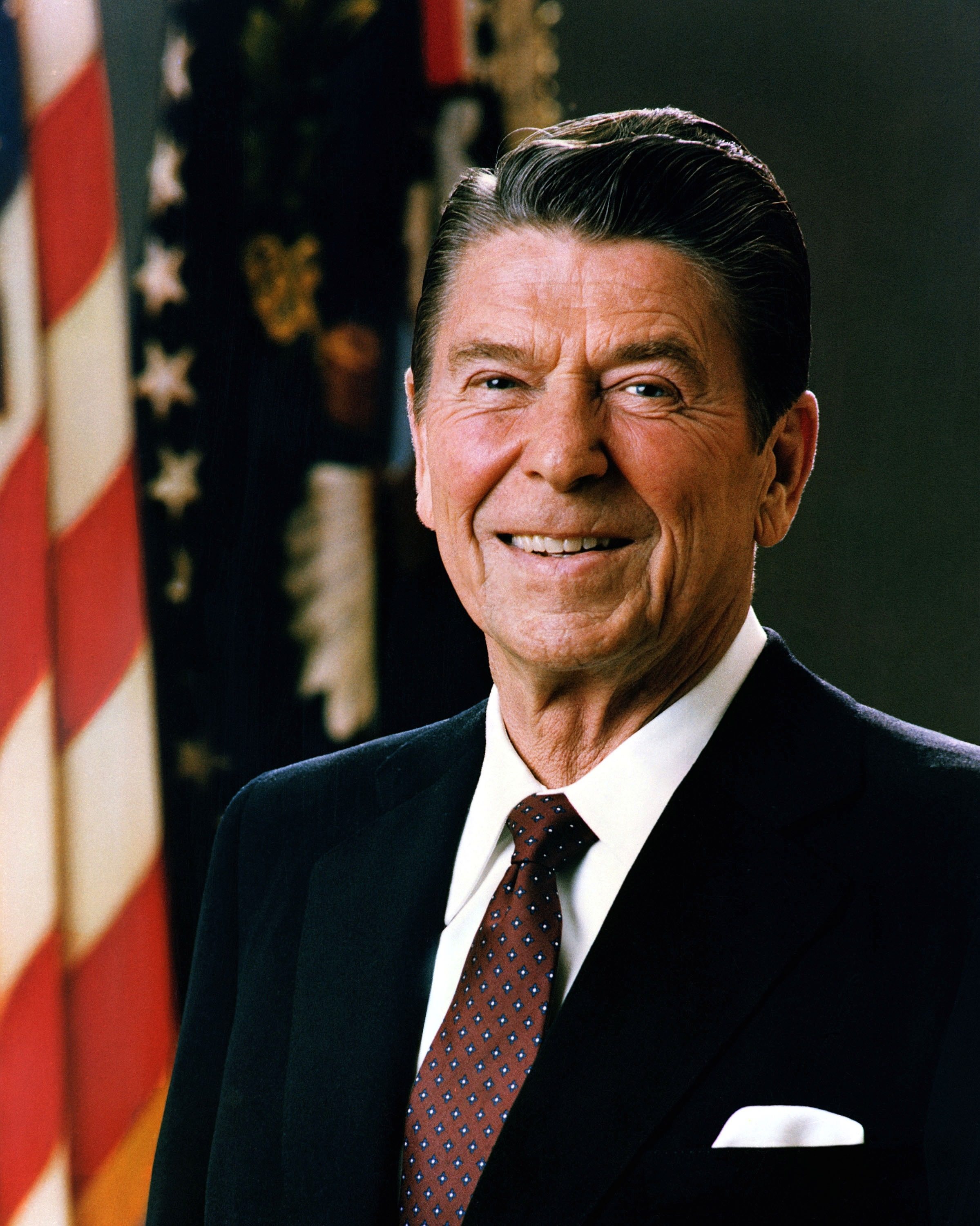 Of all the songs ever sung at Christmastime, the most wonderful of all was the song of exaltation heard by the shepherds while tending their flocks on the night of Christ’s birth. An angel of the Lord appeared to them and said: “Fear not: for, behold, I bring you good tidings of great joy, which shall be to all people. For unto you is born this day in the city of David a Savior, which is Christ the Lord.” Suddenly there was with the angel a multitude of voices praising the Heavenly Father and singing: “Glory to God in the highest, and on earth peace, good will toward men.” Sometimes, in the hustle and bustle of holiday preparations we forget that the true meaning of Christmas was given to us by the angelic host that holy night long ago. Christmas is the commemoration of the birth of the Prince of Peace, Jesus Christ, whose message would truly be one of good tidings and great joy, peace and good will.
Of all the songs ever sung at Christmastime, the most wonderful of all was the song of exaltation heard by the shepherds while tending their flocks on the night of Christ’s birth. An angel of the Lord appeared to them and said: “Fear not: for, behold, I bring you good tidings of great joy, which shall be to all people. For unto you is born this day in the city of David a Savior, which is Christ the Lord.” Suddenly there was with the angel a multitude of voices praising the Heavenly Father and singing: “Glory to God in the highest, and on earth peace, good will toward men.” Sometimes, in the hustle and bustle of holiday preparations we forget that the true meaning of Christmas was given to us by the angelic host that holy night long ago. Christmas is the commemoration of the birth of the Prince of Peace, Jesus Christ, whose message would truly be one of good tidings and great joy, peace and good will.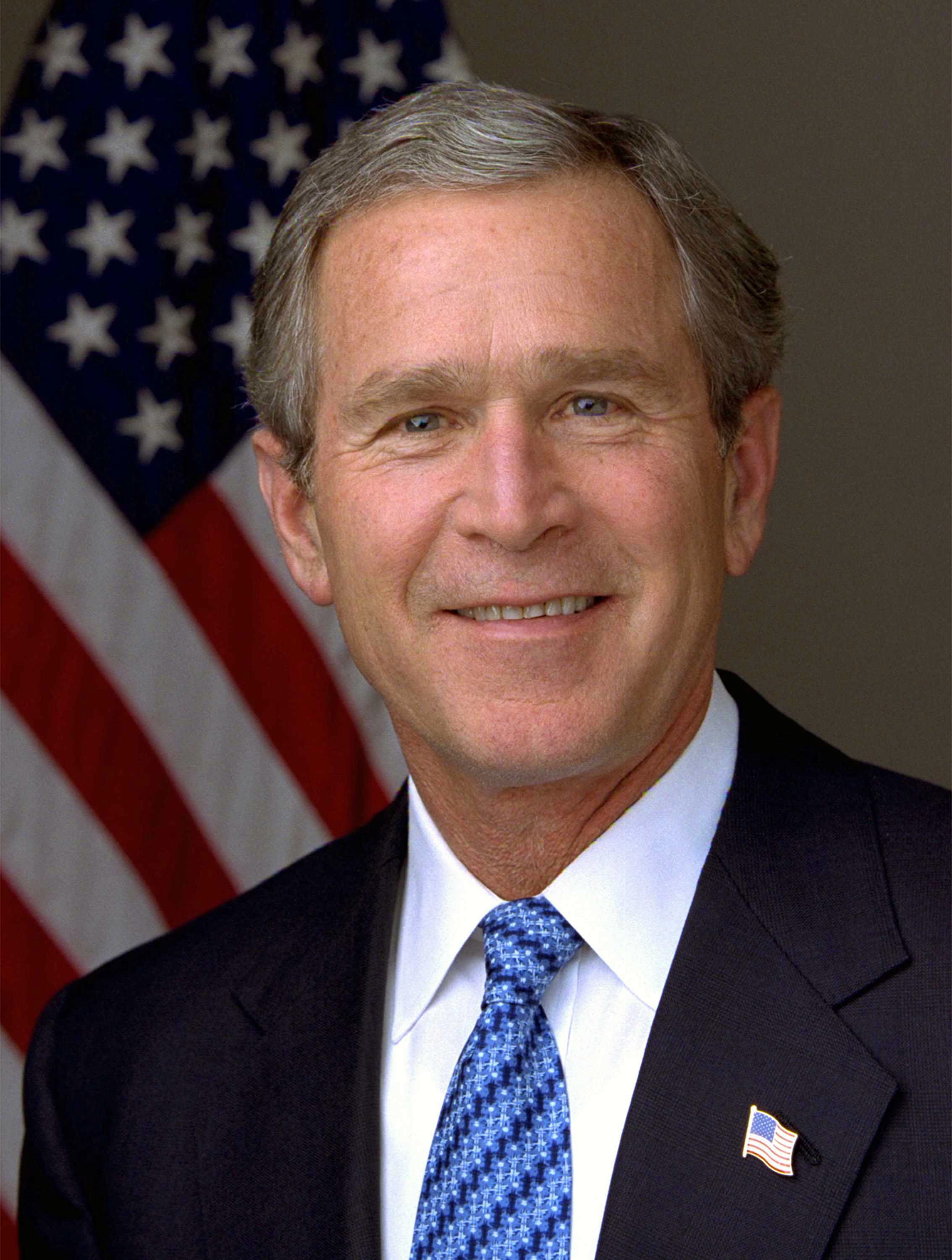 During Christmas, we gather with family and friends to celebrate the birth of our Savior, Jesus Christ. As God’s only Son, Jesus came to Earth and gave His life so that we may live. His actions and His words remind us that service to others is central to our lives and that sacrifice and unconditional love must guide us and inspire us to lead lives of compassion, mercy, and justice. (
During Christmas, we gather with family and friends to celebrate the birth of our Savior, Jesus Christ. As God’s only Son, Jesus came to Earth and gave His life so that we may live. His actions and His words remind us that service to others is central to our lives and that sacrifice and unconditional love must guide us and inspire us to lead lives of compassion, mercy, and justice. (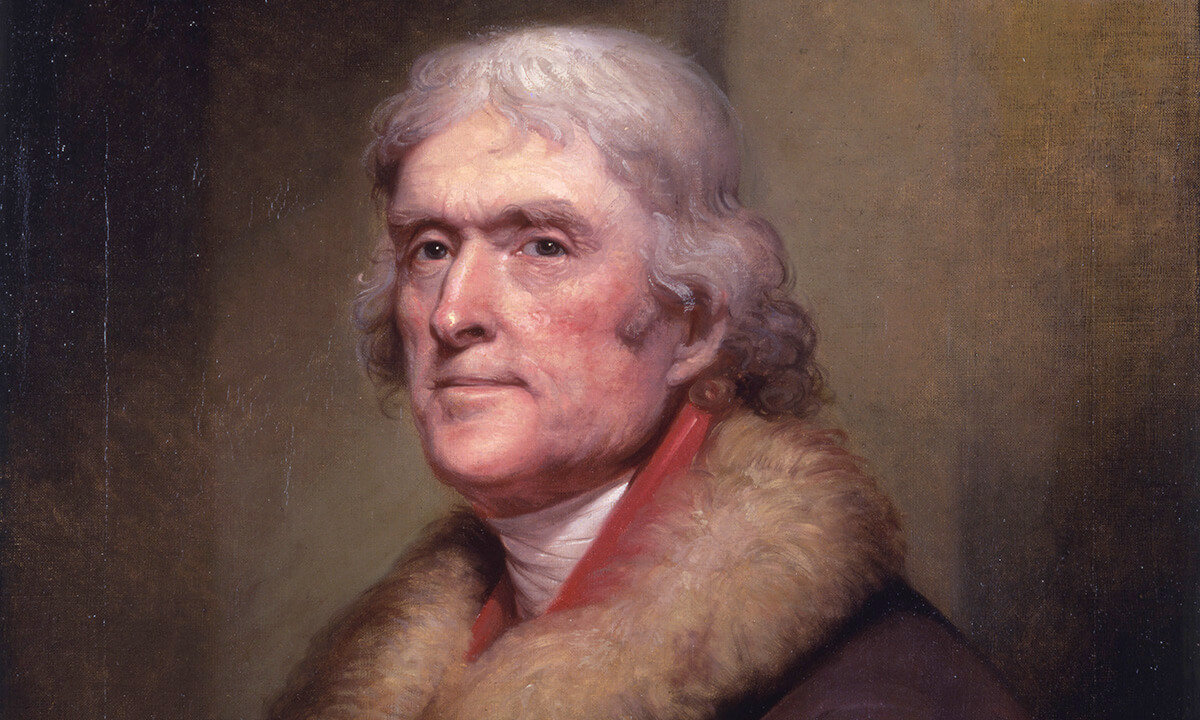
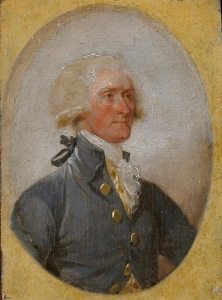 The portion of the letter, along with several paragraphs of French commentary, was printed in French papers after being delivered to them by Jefferson’s friend, and the recipient of his letter, Philip Mazzei. (Mazzei was an Italian who helped Virginia obtain arms during the American War for Independence, and become a friend of Jefferson at that point. He later spent time in France as the French sought to throw off their monarchal political system and free the people.) This French paper, with its own spin of Jefferson’s words, was then sent to America and translated back into English. At this point, the anti-Jefferson media picked up the twice translated piece and with the excerpt they lifted from the letter, viciously attacked Jefferson.
The portion of the letter, along with several paragraphs of French commentary, was printed in French papers after being delivered to them by Jefferson’s friend, and the recipient of his letter, Philip Mazzei. (Mazzei was an Italian who helped Virginia obtain arms during the American War for Independence, and become a friend of Jefferson at that point. He later spent time in France as the French sought to throw off their monarchal political system and free the people.) This French paper, with its own spin of Jefferson’s words, was then sent to America and translated back into English. At this point, the anti-Jefferson media picked up the twice translated piece and with the excerpt they lifted from the letter, viciously attacked Jefferson.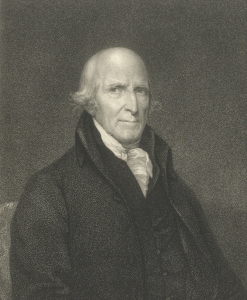
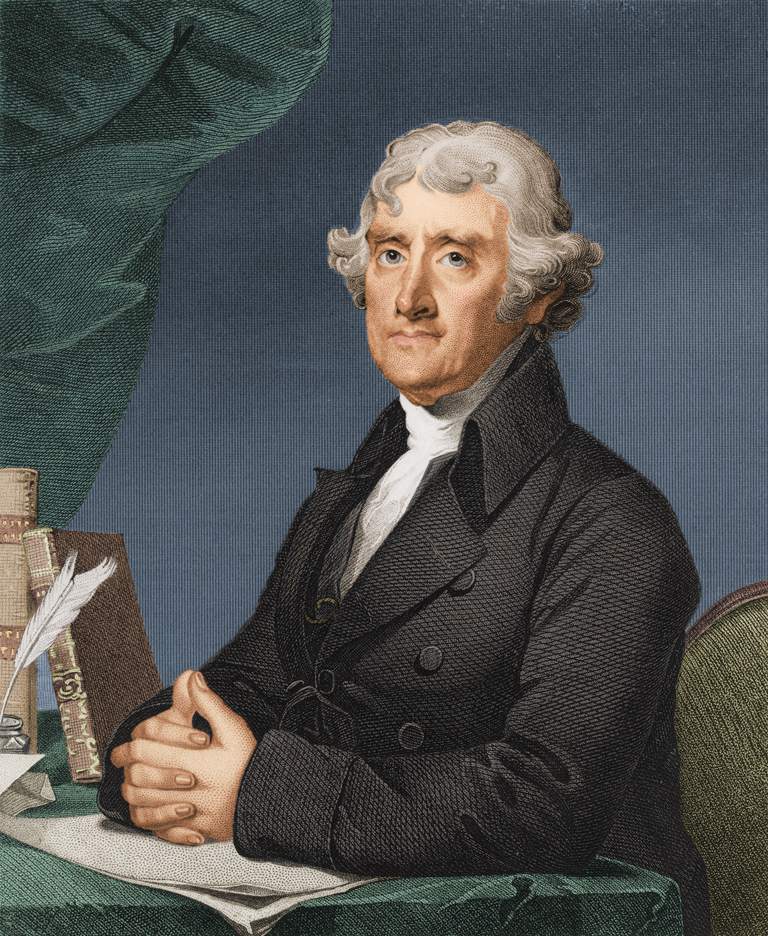 Jefferson further noted that in the translation of his letter from its original English, into Italian, then into French, and then back into English, the letter itself became so mutated and transformed that in many cases the anti-Jefferson newspapers were able to make it mean whatever they wanted it to. He focused specifically on one single word which significantly affected the interpretation of the letter:
Jefferson further noted that in the translation of his letter from its original English, into Italian, then into French, and then back into English, the letter itself became so mutated and transformed that in many cases the anti-Jefferson newspapers were able to make it mean whatever they wanted it to. He focused specifically on one single word which significantly affected the interpretation of the letter:
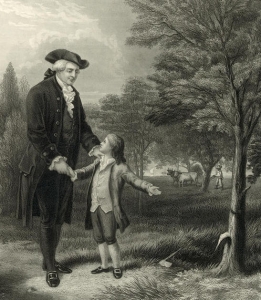 1. George Washington did not chop down a cherry tree.
1. George Washington did not chop down a cherry tree. 3. He was nominated to be commander of the colonial army by John Adams.
3. He was nominated to be commander of the colonial army by John Adams.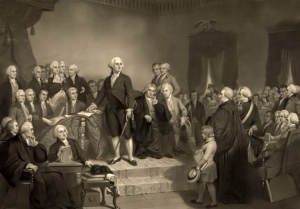 Article II, Section 1, of the Constitution states that when the President is sworn into office, he is to say the following oath:
Article II, Section 1, of the Constitution states that when the President is sworn into office, he is to say the following oath: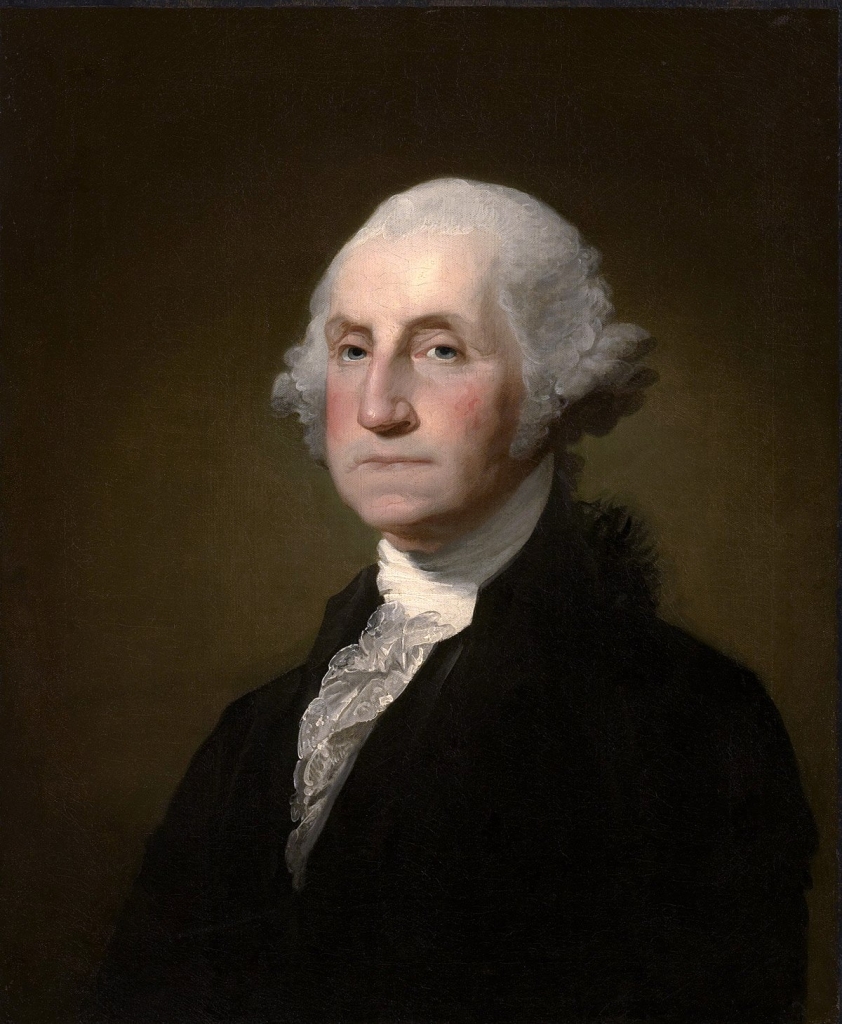 Medical science at the time thought that a number of sicknesses were caused because of some issue with the person’s blood itself. To fix the disease, therefore, a common “solution” would be to bleed a patient out in order to get rid of the bad blood.
Medical science at the time thought that a number of sicknesses were caused because of some issue with the person’s blood itself. To fix the disease, therefore, a common “solution” would be to bleed a patient out in order to get rid of the bad blood.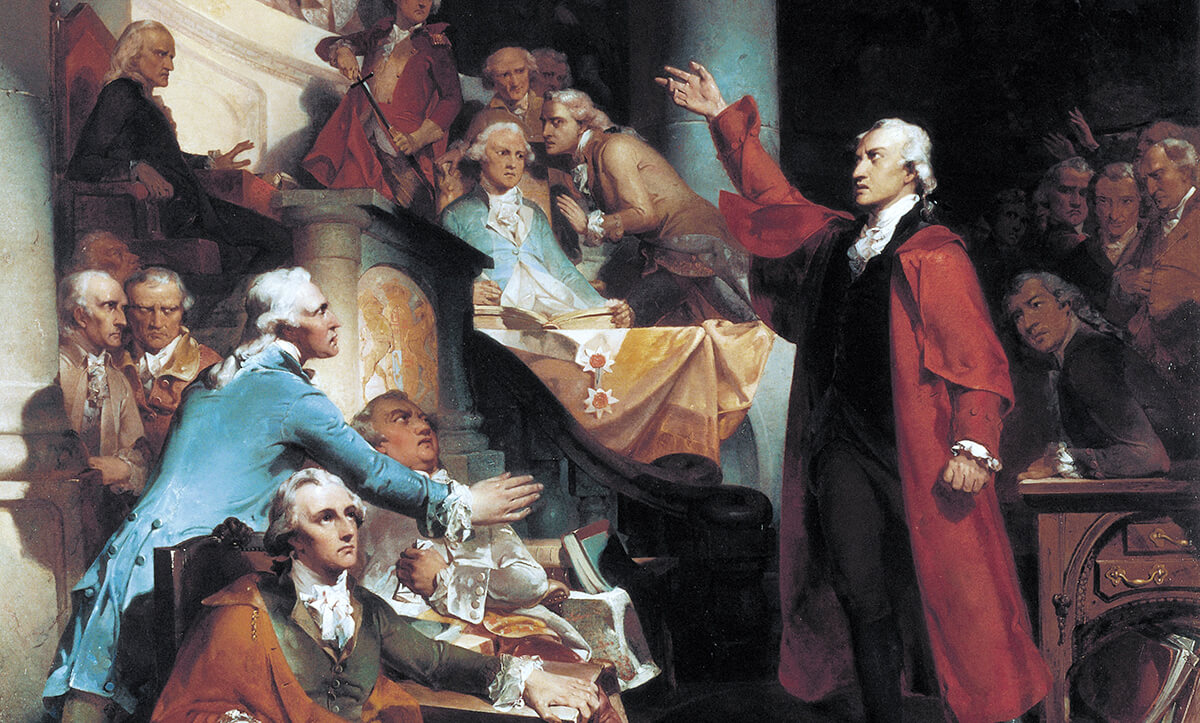
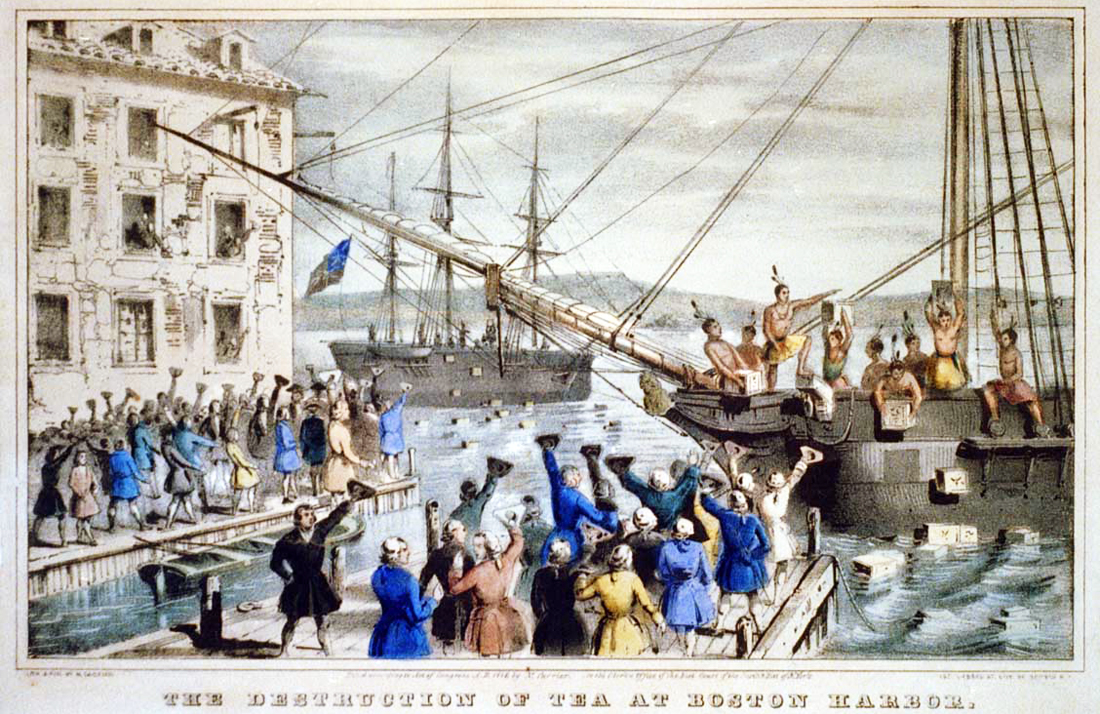 In the 1760s, Parliament
In the 1760s, Parliament 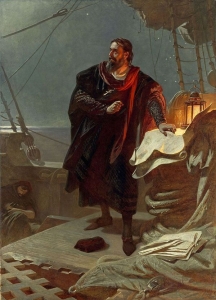 Columbus wrote these words off the coast of Spain, bound in chains. An official officer sent by the King and Queen to investigate allegations of misconduct shipped Columbus and his brothers back to Spain in 1500 after usurping power and allying himself with the armed rebels. Columbus penned the above letter as a vindication of his conduct to Ferdinand and Isabela, and in a sense, his claim proved to be prophetic. As soon as the Sovereigns discovered the imprisonment of Columbus, they ordered him released and to appear before them in order to address the accusations. After hearing Columbus’s defense, they cleared him of all charges. The allegations were not credible and proved to be false upon investigation. Columbus was restored.
Columbus wrote these words off the coast of Spain, bound in chains. An official officer sent by the King and Queen to investigate allegations of misconduct shipped Columbus and his brothers back to Spain in 1500 after usurping power and allying himself with the armed rebels. Columbus penned the above letter as a vindication of his conduct to Ferdinand and Isabela, and in a sense, his claim proved to be prophetic. As soon as the Sovereigns discovered the imprisonment of Columbus, they ordered him released and to appear before them in order to address the accusations. After hearing Columbus’s defense, they cleared him of all charges. The allegations were not credible and proved to be false upon investigation. Columbus was restored.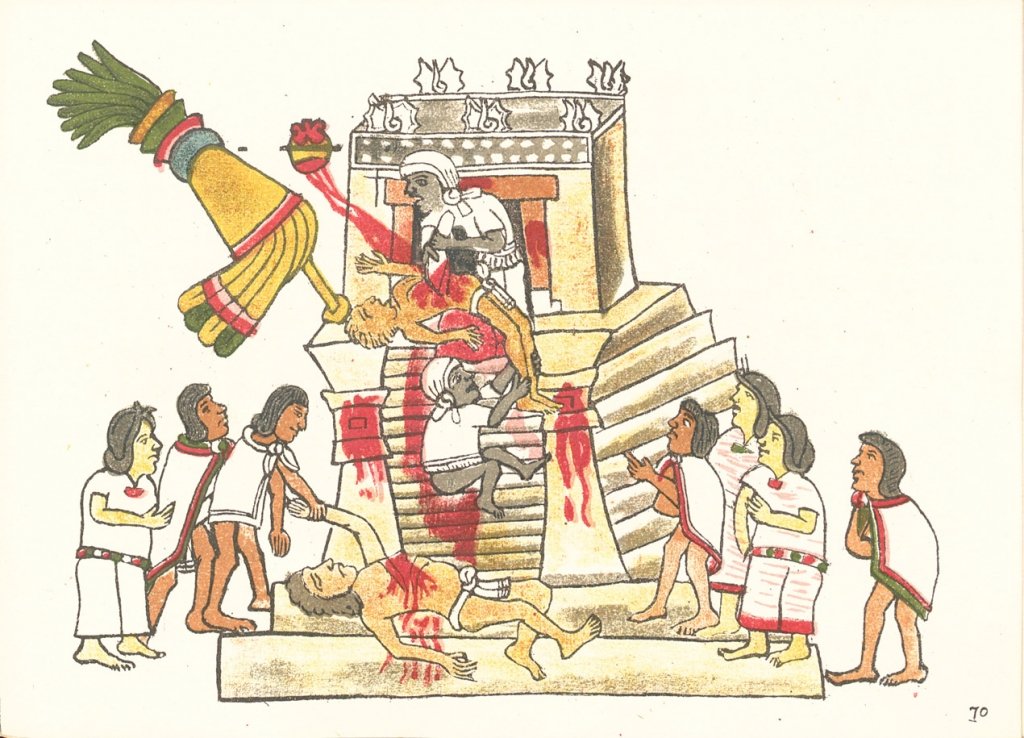
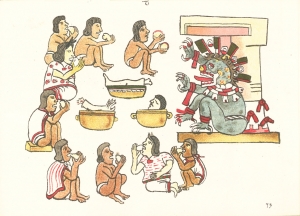

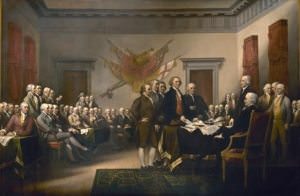 On July 4, 1776 a group of Americans approved a document declaring the United States of America free from English rule. This document was the Declaration of Independence,
On July 4, 1776 a group of Americans approved a document declaring the United States of America free from English rule. This document was the Declaration of Independence,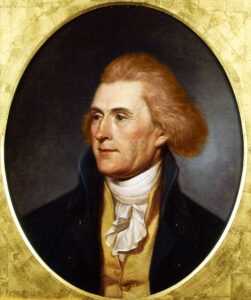 When forced, therefore, to resort to arms for redress, an appeal to the tribunal of the world was deemed proper for our justification. This was the object of the Declaration of Independence. Not to find out new principles, or new arguments, never before thought of, not merely to say things which had never been said before; but to place before mankind the common sense of the subject, in terms so plain and firm as to command their assent, and to justify ourselves in the independent stand we are compelled to take. Neither aiming at originality of principle or sentiment, nor yet copied from any particular and previous writing, it was intended to be an expression of the American mind.
When forced, therefore, to resort to arms for redress, an appeal to the tribunal of the world was deemed proper for our justification. This was the object of the Declaration of Independence. Not to find out new principles, or new arguments, never before thought of, not merely to say things which had never been said before; but to place before mankind the common sense of the subject, in terms so plain and firm as to command their assent, and to justify ourselves in the independent stand we are compelled to take. Neither aiming at originality of principle or sentiment, nor yet copied from any particular and previous writing, it was intended to be an expression of the American mind.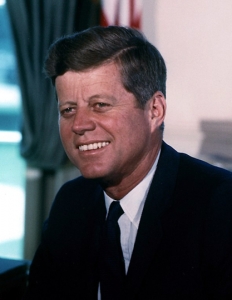 [The] Declaration unleashed not merely a revolution against the British but a revolution in human affairs. Its authors were highly conscious of its worldwide implications. And
[The] Declaration unleashed not merely a revolution against the British but a revolution in human affairs. Its authors were highly conscious of its worldwide implications. And 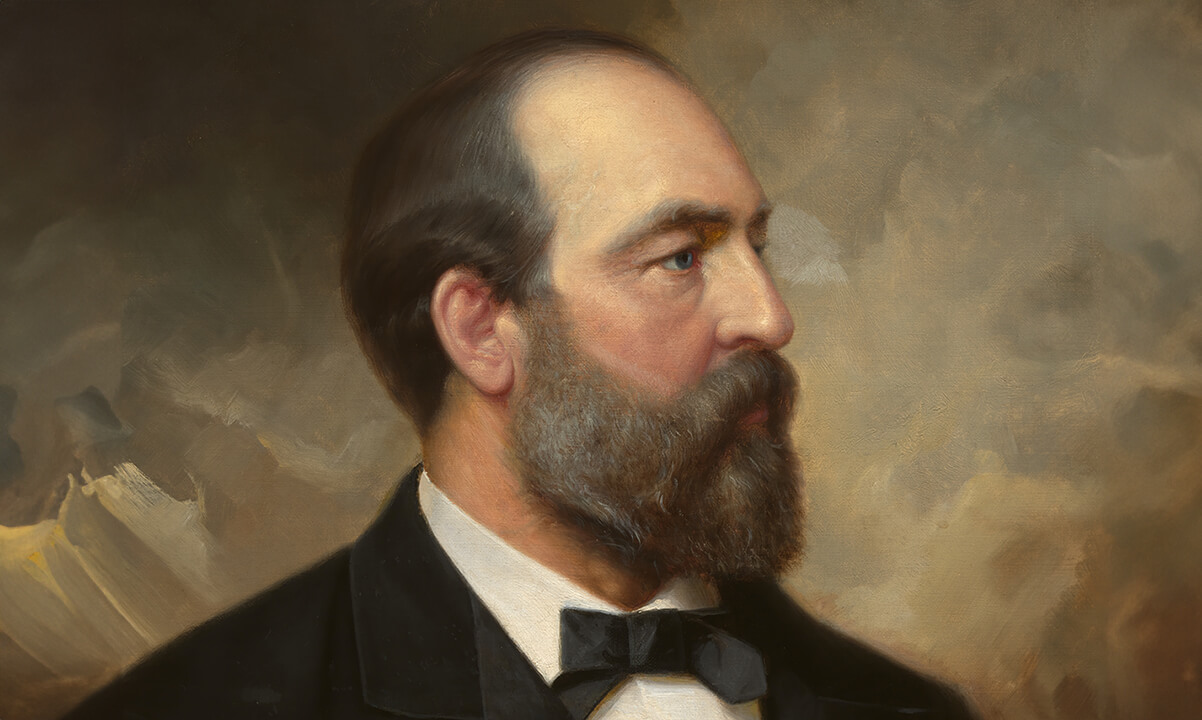
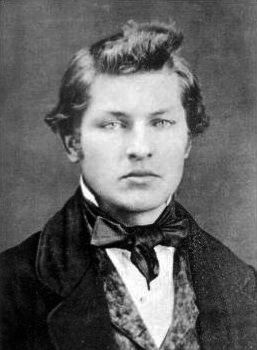 James was awakened out of a very sound sleep…He began to uncoil a rope to steady the boat through a lock it was approaching. The rope caught somehow on the edge of the deck and resisted several pulls that he made to extricate it. At last it yielded but, in the rebound, sent him headlong over the bow into the water…Death seemed inevitable. Fortunately his hand seized the rope in the darkness…and he drew himself, hand over hand, upon deck. He saw that he had been saved as by a miracle…’What saved me that time? It must have been God. I could not have saved myself’…During the time that he was thus reflecting he was trying to throw the rope so that it would catch in the crevice. Again and again he coiled the rope and threw it; but it would neither kink nor catch…It was but a few weeks after the last immersion before James was quite severely attacked by ague, a diseases that prevailed somewhat in that region…The captain settled with James…and James started for home…As he drew near the house, he could see the light of the fire through the window…Looking in at the window, he beheld her [his mother] kneeling in the corner, with a book open in the chair before her…her eyes were turned heavenward; she was praying. He listened and he distinctly heard, “Oh, turn unto me, and have mercy upon me! Give Thy strength unto Thy servant, and save the son of Thine handmaid!’
James was awakened out of a very sound sleep…He began to uncoil a rope to steady the boat through a lock it was approaching. The rope caught somehow on the edge of the deck and resisted several pulls that he made to extricate it. At last it yielded but, in the rebound, sent him headlong over the bow into the water…Death seemed inevitable. Fortunately his hand seized the rope in the darkness…and he drew himself, hand over hand, upon deck. He saw that he had been saved as by a miracle…’What saved me that time? It must have been God. I could not have saved myself’…During the time that he was thus reflecting he was trying to throw the rope so that it would catch in the crevice. Again and again he coiled the rope and threw it; but it would neither kink nor catch…It was but a few weeks after the last immersion before James was quite severely attacked by ague, a diseases that prevailed somewhat in that region…The captain settled with James…and James started for home…As he drew near the house, he could see the light of the fire through the window…Looking in at the window, he beheld her [his mother] kneeling in the corner, with a book open in the chair before her…her eyes were turned heavenward; she was praying. He listened and he distinctly heard, “Oh, turn unto me, and have mercy upon me! Give Thy strength unto Thy servant, and save the son of Thine handmaid!’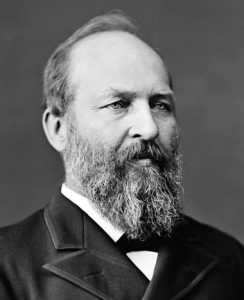 President James Garfield was
President James Garfield was 